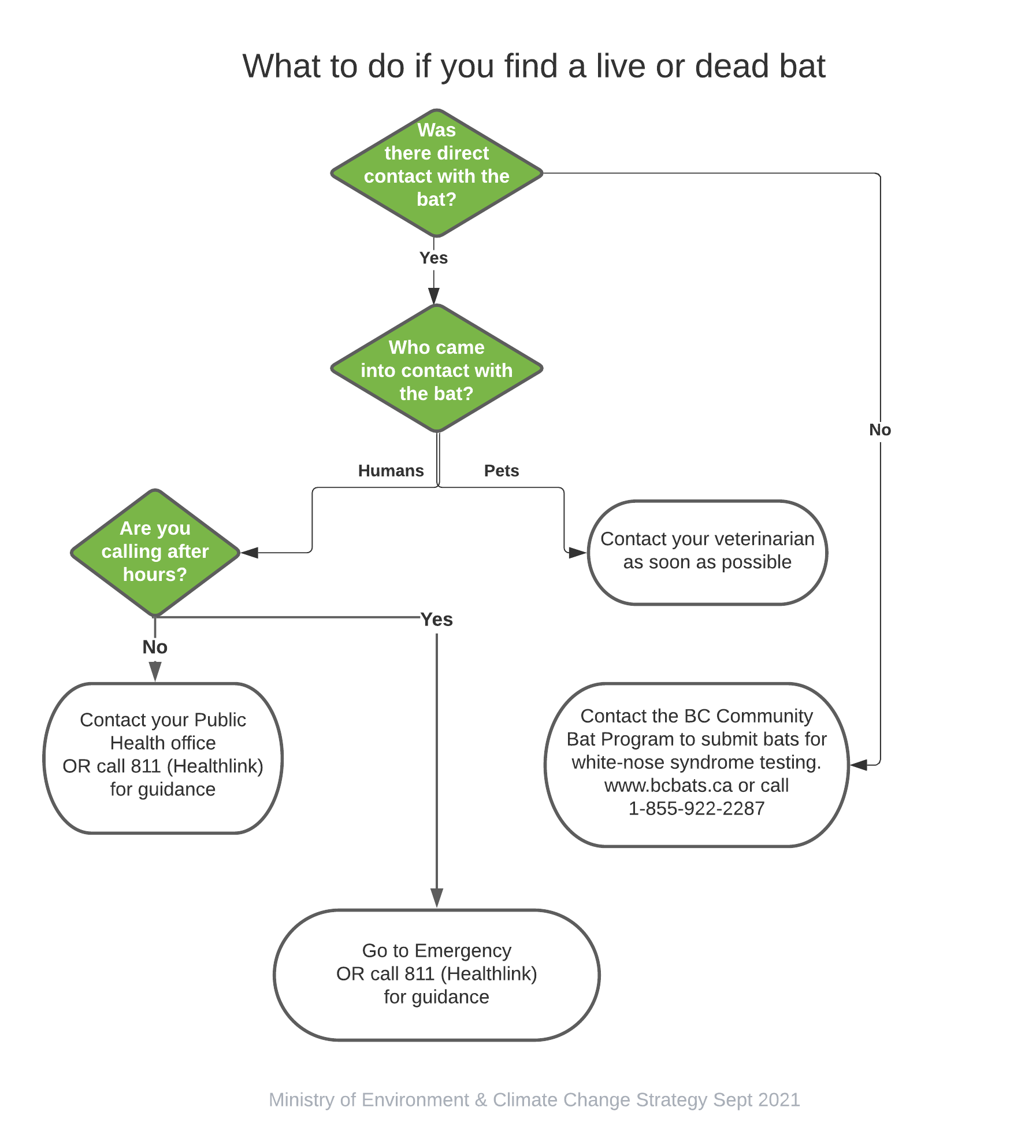Bats
Bats in B.C. eat a wide variety of insects and pests. They are essential for keeping our ecosystems in balance. This page overviews information on bats and what to do if you come in contact with one.
On this page:
What to do if you find a bat
Bats can carry many different pathogens, some of which are harmful to bats and humans. We need to ensure humans have the information they need to live around bats.
What to do if you find a bat:
- There was direct human contact with a bat
- My pet came into direct contact with a bat
- I want to report a bat but did not directly come into contact
There was direct human contact with a bat:
- Contact your public health regional office OR call 811 (Healthlink B.C.) for guidance
- If you are looking for assistance after hours, go to your nearest Emergency centre or call 811 (Healthlink B.C.)
My pet came into direct contact with a bat:
- Contact your veterinarian as soon as possible
I want to report a bat:
For information on reporting and living with bats contact:
- The BC Community Bat Project
- Call: 1-855-922-2287.
Learn more about bats
- General health of bats and their basic biology
- Their population numbers
- Daily activity patterns
- Roost selection (where they gather when they are not active)
More information on bats:
COVID-19 and bats
It is unknown if bats in B.C. can become infected with or transmit the SARS-CoV-2 virus responsible for COVID-19. This situation is evolving; check in with the BC Small Mammal and Herpetofauna Specialist for updates.
March 11, 2021
The Canadian Wildlife Health Cooperative's (CWHC) recommendations on the handling of bats.
July 2, 2021
Guidance for those who work with wildlife from the American Association of Fish and Wildlife Agencies.
April 1, 2020
Update from the U.S. National Wildlife Health Centre (NWHC) about the Coronavirus in wildlife.
Resources on bats
Learn more about diseases that can affect bats in B.C.
Contact information
For all wildlife health inquiries, contact BC Wildlife Health at:
250 751-7246

